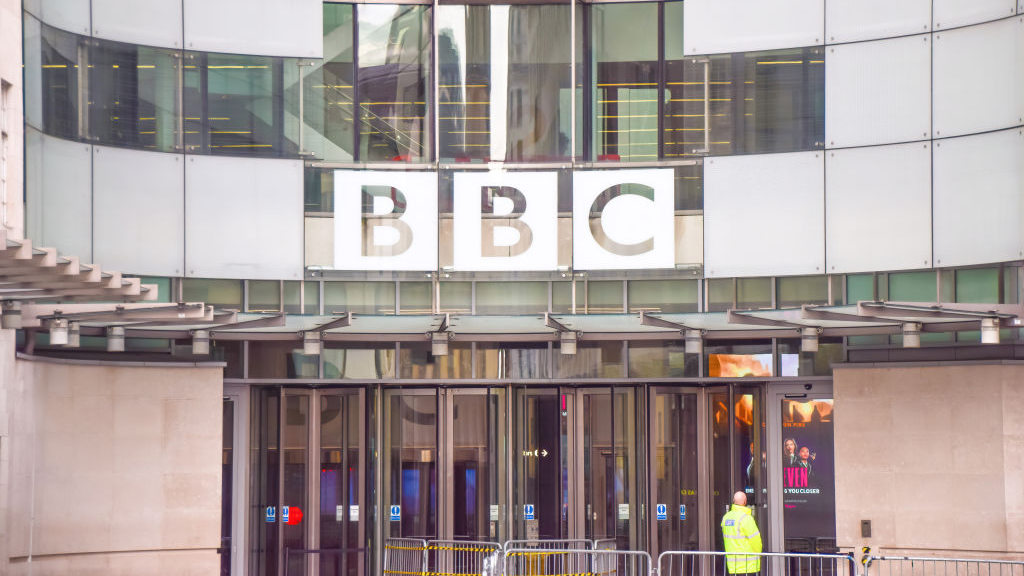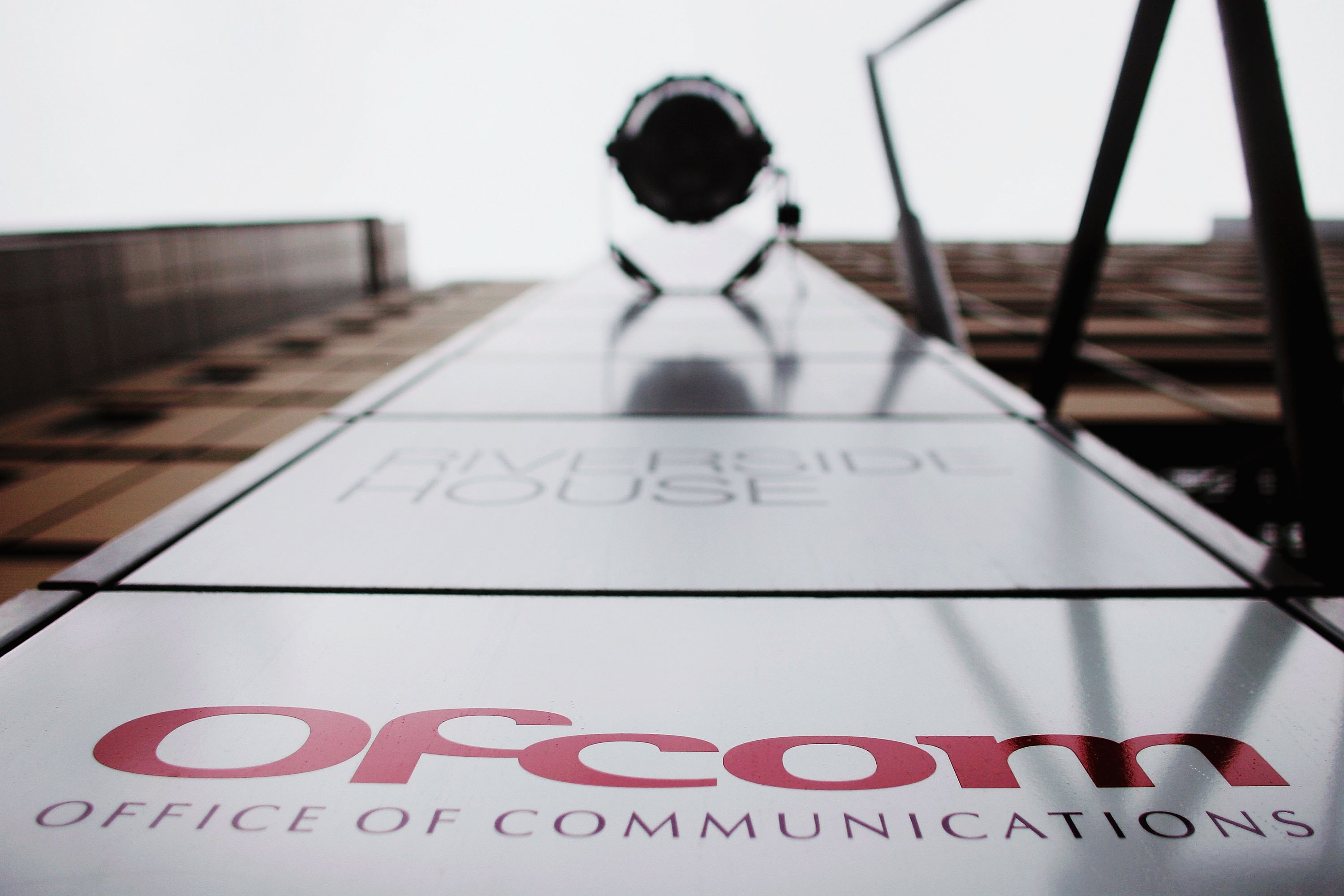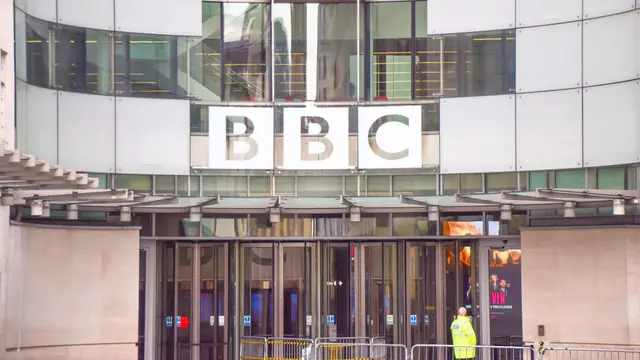
The BBC headquarters in central London. /Getty
Editor's note: Hamzah Rifaat Hussain is a former visiting fellow at Stimson Center in Washington and currently serves as assistant researcher at Islamabad Policy Research Institute (IPRI) in Pakistan. The article reflects the author's opinions, and not necessarily the views of CGTN.
After muzzling out alternate perspectives on issues of global significance, the BBC on Monday claimed that credible evidence exists that China has committed "genocide" in Xinjiang. Like former U.S. Secretary of State Mike Pompeo's earlier statements, this claim by the BBC follows Ofcom's revocation of CGTN's license based on a misguided assumption that Beijing's perspectives have done great injustice to the global news audience. None of these assumptions, however, carry any merit.
The president of Post Versa, a human rights and fundamental rights chapter in Belgium as well as member of the International Alliance for the Defense of Rights and Freedoms (AIDL) constituted by the United Nations, Andy Vermaut condemned the revocation of CGTN's license and categorized it as a huge blow to global public news consumption.
Citing imperial delusions on part of London that any nation conforming to British narratives on news reporting on subjects such as Xinjiang or Hong Kong is to be accepted at the expense of contrary views, Vermaut's analysis confirmed that even champions of human rights consider this move as controversial. The United Kingdom, with its imperial history, had committed egregious violations of human rights across the world and despite its colonial legacy, it has little appetite for any nation which challenges the veracity of its assessments. The fact that this is taking place in 2021 is unfortunate.
Revoking CGTN's license also demonstrates the pervasive racism in the United Kingdom toward China. Claims of racism and imperial designs are not coming from Chinese allies or anti-West lobbyists but from human rights activists who consider such brazen politicization of the media as an anathema to world peace. Unfettered access to information is considered a fundamental right for all citizens regardless of political orientation or geography.
Conversely, such calls support the case that the CGTN does not muzzle out human rights violations or attempts to cover up developments through blatant denial. In fact, an alternate reality grounded in facts does exist for public consumption without which holistic perspectives on subjects grounded in Western rhetoric cannot be developed.

The Ofcom (Office of Communication) logo at its headquarters in London, UK. /Getty
One example is that of insurgencies and terrorist groups which have attacked the Chinese state as much as cause grave harm to Western societies. While secretary of states in Western capitals alongside the BBC itself have brazenly and erroneously termed Chinese activities in Xinjiang as "genocide," there is scant understanding of how contrary narratives of China being afflicted with terrorism have soldiers and citizens harmed, heinous crimes against humanity committed and infrastructure destroyed.
Counterterrorism efforts and coverage actually coincide with Western acrimony toward terrorist activities yet the divergence between the United Kingdom and China issues such as Xinjiang have set a dangerous precedent where the pernicious activities of the separatist movements in Xinjiang are not considered as a priority in London. If that is the case, the United Kingdom boasting about championing the cause of human rights globally becomes instantly controversial.
This dualism and hypocrisy is precisely why human rights champions such as Vermaut take exception to such moves. Quoting verbatim from the BBC website, Vermaut mentions how four of the non-executive members have been appointed as specific members for certain countries and how appointments are made by the Queen of the United Kingdom upon the recommendations of ministers. Other members of the board are also appointed through the board's nominations committee. It is therefore a misguided notion that CGTN is unique and must be demonized and the BBC is unscathed and factually correct.
This entire episode can be construed as part of a new "Cold War" mentality which pits one state against another on ideological grounds. Such divides have been promoted by London not Beijing despite such actions being diametrically opposed to the British model that London has touted for decades as a champion of freedom of expression. The credibility of the BBC's narratives on Xinjiang is at stake and evidence of nefarious designs to discredit other channels instead of pursuing cases on merit is in full flow. AIDL and European activists such as Vermaut have identified this disconnect. The BBC has not.
(If you want to contribute and have specific expertise, please contact us at
.)
 简体中文
简体中文

